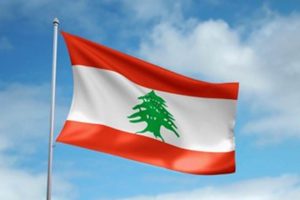 Voting began on Sunday in Lebanon’s first general election for nine years, an event seen as unlikely to upset the overall balance of power but important for economic stability.
Voting began on Sunday in Lebanon’s first general election for nine years, an event seen as unlikely to upset the overall balance of power but important for economic stability.
Television broadcasts showed people queuing at polling stations across the tiny Mediterranean country to cast their votes under new electoral rules.
Cars and mopeds were decked out with the flags of the main parties, loudspeakers blared songs in support of candidates near their electoral strongholds and young people outside polling stations wore T-shirts bearing the faces of political leaders.
Lebanon has one of the world’s highest debt-to-GDP ratios and the International Monetary Fund has warned its fiscal trajectory is unsustainable.
The country has mostly weathered the regional storm caused by seven years of war in neighboring Syria, but it has gone through several internal crises since the last election.
Voting is scheduled to last from 7 a.m. (0400 GMT) until 7 p.m. (1600 GMT), with unofficial results expected to start coming in overnight and a formal tally in the coming days. Election law makes it illegal on Sunday to publish forecasts of how the parties will perform before polls close.
Whatever the result, another coalition government including most of the major parties, like that which has governed since 2016, is likely to be formed after the election, analysts have said.
Abu Sami, 40, a civil servant, said he was tired of the established politicians. “Today I will choose new faces,” he said.
Parliament seats are divided evenly between Muslims and Christians, and further subdivided among the various sects of those religions. Lebanon’s president must always be a Maronite Christian, the prime minister a Sunni Muslim and the parliament speaker a Shi’ite.




